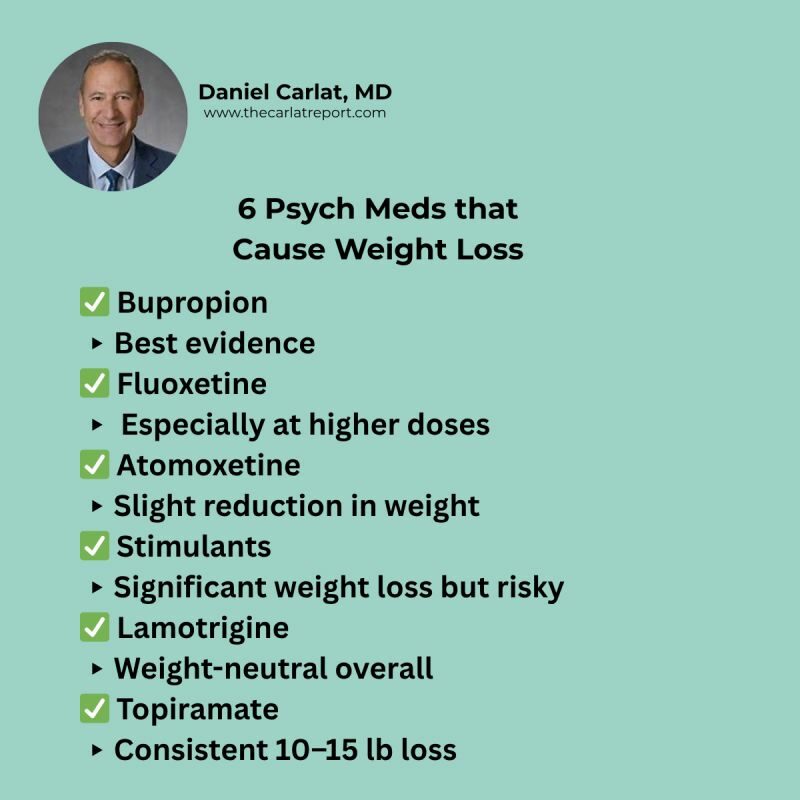GLP-1 agonists may get the spotlight—but they’re not the only option. Many patients can’t afford them, don’t want the side effects, or prefer to stick with psychiatric meds they already know.
In the May issue of The Carlat Psychiatry Report, Dr. Chris Aiken reviews psychotropics that can lead to weight loss. For seasoned clinicians, some may be familiar—but the value here is having them all in one place, with clinical nuance.
▸ Bupropion: Best data for sustained weight loss (6%–14%), especially with naltrexone
▸ Fluoxetine: Modest weight loss short term, especially at higher doses
▸ Atomoxetine: Neutral or slightly weight-reducing in ADHD and obesity
▸ Stimulants: Effective, but short-lived and high risk in psychiatric populations
▸ Lamotrigine: Weight neutral on average, with a small chance of loss
▸ Topiramate: Strong evidence for 10–15 lbs loss, but cognitive side effects
▸ Plus off-label options like amantadine, probiotics, and saffron
This isn’t about turning psych meds into weight-loss tools—but when weight loss is clinically helpful, knowing your options matters. And sometimes, it’s the difference between a patient sticking with treatment or giving up.
Takeaway:
For patients worried about gaining weight—or trying to lose some—there are evidence-backed psychotropic options worth considering before jumping to costly alternatives.
- What strategies or meds have helped your patients lose weight—while staying on track with their mental health?
- Share this post to spread practical psychopharm tips
Follow me (Daniel Carlat) for clinically grounded, unbiased psychiatry insights
Join the conversation on LinkedIn with Dr. Carlat
Related Articles
- Psych Meds That Cause Weight Loss Author: Chris Aiken, MD
- New Weight Loss Drugs in Psychiatry Authors: Chris Aiken, MD, and David Liebers, MD
- Personalized Antidepressant Treatments: Augmentation Options for Different Depression Subtypes Authors: Deepti Anbarasan, MD; David Liebers, MD; and Greg Malzberg, MD


_-The-Breakthrough-Antipsychotic-That-Could-Change-Everything.jpg?1729528747)



